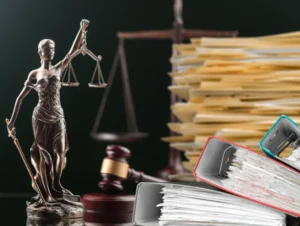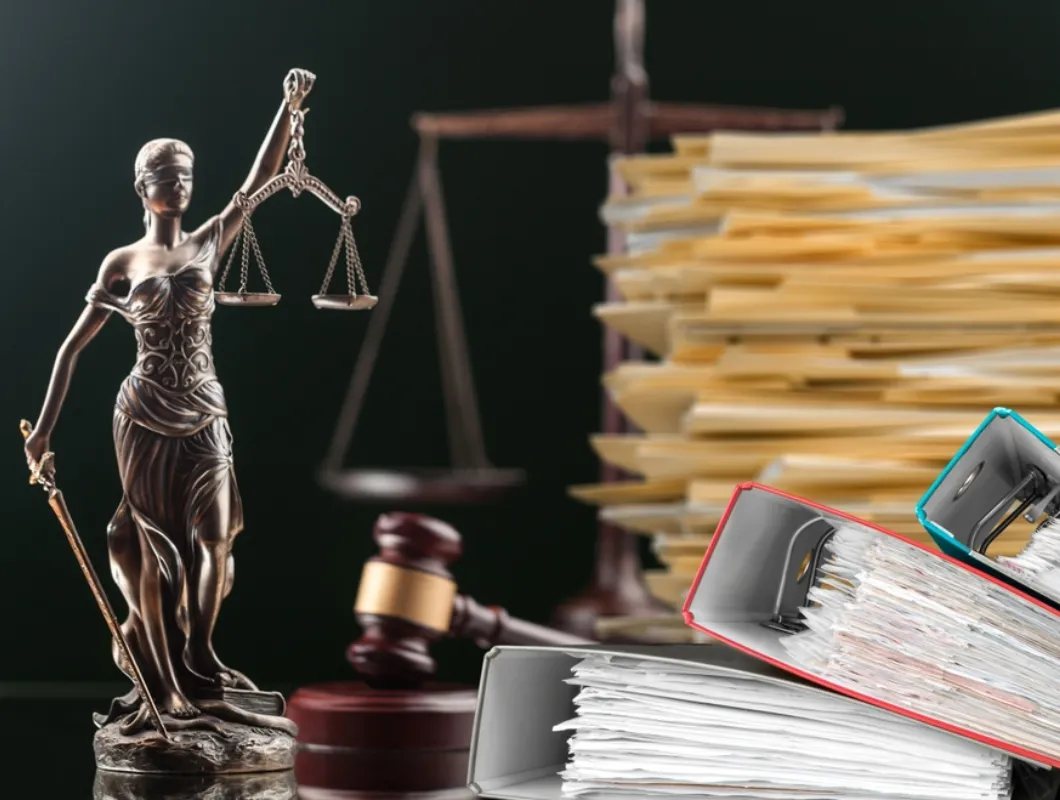
What is Mediation in Divorce The Best Ultimate Guide to in 2024
Table of Contents
The institution of marriage has evolved in today’s society. It is no longer believed to be a lifetime commitment, a holy relationship, as the idea of equality has supplanted family values, eventually leading to increased family disputes. Society needs to strive to find measures to protect the family, as well as avoid and resolve issues that threaten the family’s fragile base. Mediation has, in recent years, proven to be an effective alternative, which is now being pushed as a primary option for parties to pursue. In 2002, an amendment was made via section 89 of the CPC that empowered courts to refer matters that ‘contained elements of settlement’ to be settled out of Court. The section enumerates different alternatives for alternative dispute redressal, one of which is Mediation.
Mediation In India
The Mediation Act 2023 aims to foster and enable Mediation as an alternate dispute resolution method to litigation, mainly focusing on community mediation, online Mediation, and institutional Mediation.
The act aims to facilitate contract, commercial, family, and community dispute resolution cost-effectively and make Mediation an acceptable and accessible alternative to litigation. The act lays out who are the parties to Mediation, who can be a mediator, how community mediation will take place, matters not fit for Mediation, mediation agreements, power of the courts, mediation proceedings, mediated settled contracts, and formation of mediation council and many other things pertinent to mediation proceedings.

What Is Mediation In Divorce?
If you’re considering Divorce or are going through one, you might hear the term “mediation in divorce.” But what exactly is Mediation, and why is it essential in divorce cases? In this blog, let us see what Mediation is, why it is necessary for divorce disputes, and why it is worth considering. So, let’s dive in and explore the world of Mediation in Divorce.

Mediation in Divorce is for couples who seek an efficient yet fair divorce process. Mediation is a collaborative process that allows individuals to control the outcome. It will enable divorcing couples to try and negotiate a mutually acceptable agreement with the help of a neutral mediator. The mediator is a neutral, third-party professional who keeps spouses focused on the goal of a fair outcome, not battling over past resentments. During divorce mediation, the mediator guides couples in addressing all the issues associated with Divorce, including asset division, custody arrangements, and spousal and child support.
Mediation In Divorce Vs. Traditional Divorce
With a vast number of pending matrimonial cases in the Courts, the decree of Divorce is generally prolonged. According to the ‘Family Law Supreme Court Steering Committee (2003)’, family law cases constitute approximately 40% of court files and over 70% of reopening.

Mediation encourages closure. Mediation is often a “one-stop” option for couples, as the mediator prepares the entire divorce settlement agreement and provides the paperwork necessary for the final decree in the Court. It does not allow for any additional appeals, revisions, or litigation.
There’s also a chance it’ll assist you in mending or rebuilding your relationship because there are many occasions where a disagreement is sparked by little issues. Mediation has proven to be a cost- and time-effective method for resolving issues between husband and wife. The traditional method of Divorce is more like digging the grave than doing anything good. Mediation is also far more participatory, where each party has the opportunity to present their argument and express their feelings openly without the constant threat of being correct, as in Courts.
In Mediation, spouses have the flexibility to cost-effectively reach agreements when they have complicated circumstances. Whereas in the traditional divorce process is usually designed to sever all assets at the time of the Divorce, this might be a desired outcome for one party and disheartening and pressurizing to the other.
Mediation also allows for more creative parenting agreements when courts tend to default to every other weekend and one night-per-week arrangement.
Procedure Of Mediation
Mediation in India can be started in two ways:

- Parties refer to Mediation voluntarily, i.e., private Mediation.
- The Court refers the parties to Mediation under Section 89 of the Civil Procedure Code.
In family and matrimonial cases, the best time for Mediation is just after the respondent has been served the notice and before the respondent files written statements/objections.
The functional stages involved in Mediation are
- Introduction and Opening Statement,
- Joint Session,
- Separate Session(s), and
- Conclusion of discussions made.
- Entering into settlement agreement.
Key Aspects As To Why Mediation Is Necessary In Divorce
- Role of Mediation—Mediators are trained professionals who remain neutral throughout the process. They help the parties identify the issues, explore possible solutions, and reach an amicable settlement.
- Confidentiality – The discussion that takes place in the mediation rooms remains in the room itself; it creates a safe space for honest and open discussions. This confidentiality fosters trust between the parties. The mediator is obligated to report to the Court a report of successful sessions, and he does not need to send the details of the proceedings. In any case, if the Mediation fails, the mediator must provide a report that states, “Mediation Failed.”
- Informal Setting—Mediation sessions are typically more informal than courtrooms. The environment can help reduce tensions and encourage a more cooperative atmosphere. Mediation is less stressful than litigation.
- Cost-effective and Time-effective – It cuts down the price to be paid to lawyers and also the lengthy process of ligation.
- Quicker resolutions
- Legally Binding – Agreements resulting from Mediation will be final, binding, and enforceable in the same manner as court judgments. \
- Child support and custody.
- Quicker resolutions
- More satisfactory outcomes
Duty Of The Court
In India, family laws are not unified, and the personal laws of persons of different religious beliefs are different. Here are some of the statutes under which Divorce is issued in India:
- The Hindu Marriage Act, 1955
- Dissolution of Muslim Marriage Act, 1939 – This legislation elucidates the dissolution of marriage under Muslim law and the effects of married Muslim women renouncing Islam.
- Indian Divorce Act, 1869 – Focused on Divorce within the Christian community.
- Parsi Marriage and Divorce Act, 1936: This act governs marriage and Divorce among Parsis.
- Muslim Women (Protection of Rights on Divorce) Act, 1986 – Addressing the rights of divorced Muslim women, especially regarding maintenance.
- Muslim Personal Law/ Application of Shariat Act, 1937 – Mandating the application of Islamic Law (Shariat) to Muslims in India concerning family matters.
Section 9 of the Family Court Act makes it mandatory to settle a marital dispute regarding maintenance, child custody, divorces, etc., through Mediation. It also states that the parties should be referred to a mediation center with their consent. The family court can use counsellors if needed to resolve disputes. Mediation centers should set a time limit for the completion of the conflict dispute to avoid further or unnecessary delays in the matter.
Section 89, Code of Civil Procedure 1908, refers to the settlement of disputes outside the Court. The Court, upon recognizing the possibility for a settlement, can refer the matter:
- Arbitration: If the dispute is referred for arbitration, the provisions of the Arbitration and Conciliation Act 1996 shall apply.
- Mediation: The Court may refer the parties to Mediation, either at a court-annexed mediation center or any other mediation service provider or mediator chosen by the parties. In this case, the provisions of the Mediation Act 2023 would apply as if the proceedings were referred for settlement under the act.
- Lok Adalat: If the matter is referred to the Lok Adalat, the Court follows the procedures outlined in the Legal Services Authority Act 1987.
- Judicial Settlement: Another option available to the Court is to facilitate a compromise between the parties, employing suitable procedures for judicial settlement.
Addressing Common Issues In Divorce Mediation:
Guidance From An Experienced Divorce Lawyer
Being an experienced divorce lawyer, I often find Mediation valuable as it gets us results sooner and is, hence, time-saving while having a variety of options to explore. Furthermore, the best way to resolve conflicts during a divorce is to do so amicably.
Let’s highlight the common issues we address during Mediation in Divorce:
Property Division

Fair property division is a primary concern. A financial portfolio includes real estate, personal belongings, investments, and retirement accounts. With Mediation, we can work with a neutral mediator. They help us find a solution that we both like, and that respects your situation and each asset’s value. A lawyer can counsel you on legal strategies and give advice.
Spousal Support

Spousal support, or alimony, is a critical issue to consider. It can take time to determine the amount and duration of support. Still, with the help of a skilled mediator and counsel, we can reach a fair and stable solution that best suits both parties.
Child custody and support

A child’s well-being is paramount. Courts will look closely at the needs of any child and will always rule for what is in their best interests. Although marriage is ending, your parenting duties will not. Mediation helps the parties talk about child custody, which includes both physical and legal custody. The goal is to put the children’s interests first.
Mediation helps us reach a consensus while fostering positive co-parenting. We also help decide child support obligations while considering factors such as income, expenses, and the children’s needs. A big part of what the mediator will do is help draw lines of communication and help parents establish boundaries regarding their children.
Division of Debts and Liabilities

Addressing the distribution of debts and liabilities is essential in the divorce process. In recent times, as the idea of equality has supplanted way beyond family values, Mediation has fostered the settlement of financial liabilities amicably. The liabilities include mortgages, automobile loans, and credit card balances. It also includes other financial commitments. We may negotiate talks on how to share these duties fairly.
FAQs about mediation in divorce.
What is mediation in divorce?
Mediation in divorce is an alternative to traditional court-based divorce. It is a way to resolve conflicts peacefully and confidentially. It involves a neutral third-party mediator. They help the two parties reach an agreement on many parts of the divorce. These parts include property division, child custody, and support.
Why choose mediation in divorce?
Mediation can be faster and cheaper. It’s better than a traditional divorce. It also provides a more flexible and less stressful environment. In it, the parties can resolve their differences. It can help to maintain a better relationship between the two parties after the divorce.
Who can take part in divorce mediation?
Both parties involved in the divorce can take part in Mediation. But, both parties must be willing to cooperate. They must reach an agreement for Mediation to work.
How does divorce mediation work?
Divorce mediation has many sessions. In them, the mediator helps the parties talk and agree on their divorce. The mediator does not make decisions for the parties. They allow the parties to find a solution that all can accept.
What are the benefits of divorce mediation?
Divorce mediation has benefits. They include lower costs, faster resolution, more privacy, less stress, and better communication. The parties can also tailor the agreement to their needs.
What should I expect from a divorce mediation session?
During a divorce mediation, the mediator will encourage open communication. They will help the parties find common ground. The mediator will also guide and support the parties. This will happen throughout the process. It will help the parties reach an agreement.
What happens if an agreement cannot be reached through mediation?
Suppose the parties are unable to reach an agreement through Mediation. In that case, they can resolve their differences through a traditional court-based divorce. Yet, Mediation is often a more successful solution for settling divorce disputes. It can help to avoid a lengthy and expensive court battle.
Am I Divorced When My Mediation Is Over?
No, completing Mediation and reaching an agreement on asset division, custody, etc., does not mean your Divorce is over. The mediator will usually prepare the settlement agreement and other paperwork required by your state after a consensus has been reached between both parties. The agreement or Memorandum of Understanding is then submitted to the Court of Law, and you might still be married for several months while you wait for a formal decree from the Court announcing that you are divorced.
Can I Ask My Mediator About the Law?
You are not in the dark without a lawyer – a mediator is allowed to explain the law and legal processes. A lawyer, however, can counsel you on legal strategies and give advice.
How can I find a Mediator?
Although not all mediators are lawyers, many experienced divorce counsellors and retired judges work as unbiased mediators. You may benefit from their legal experience and expertise in forming a valid settlement agreement. You may find successful mediators through your state’s mediation associations, your family court, or your attorney can assist you as well.
Is Mediation always an Option?
Even if you have hired counsel, you can always choose to enter into Mediation with your partner to settle any differences you may have. However, the lawyer of either spouse may not be the mediator. They can assist you in the mediation proceedings but can’t be your mediator.
You can learn more about your rights and options when filing for divorce in Bangalore. A divorce is stressful and confusing. But, with the support of Divorce lawyers, you can navigate it confidently and move on.






Pingback: Best way how to file for divorce in India (Updated - 2023)